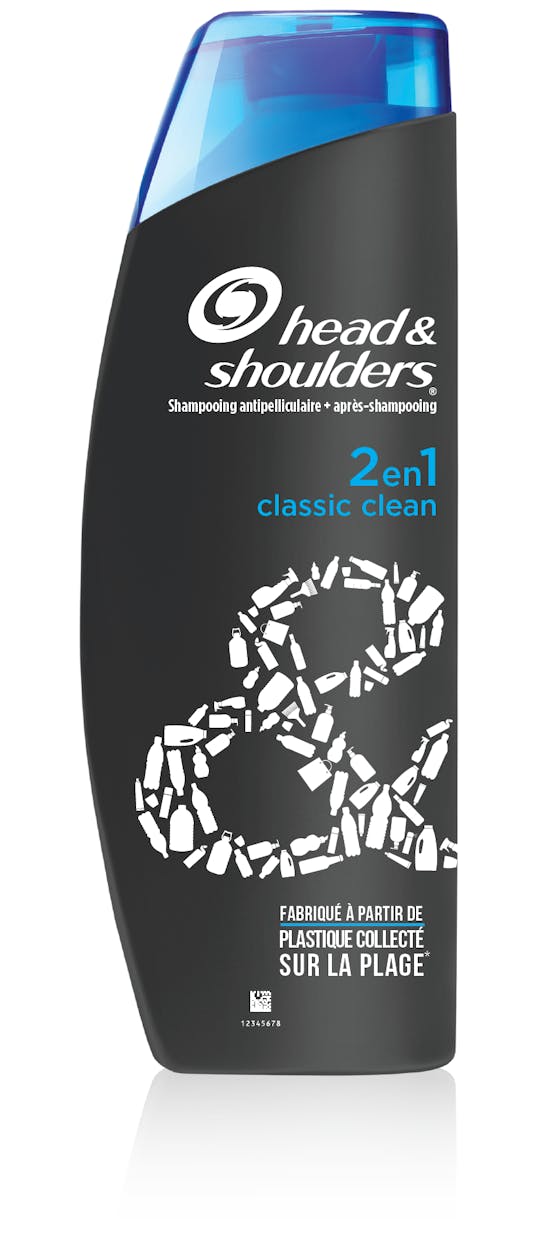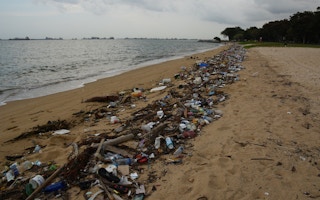Consumer goods giant Procter and Gamble (P&G) has announced that it will produce a limited-edition series of recyclable Head and Shoulders shampoo bottles that use plastic waste from beach litter.
The initiative, which according to P&G is the world’s first municipally recyclable shampoo bottle made using up to 25 per cent recycled beach plastic—previous containers made with beach plastic were not recyclable after use—was announced on January 19 at the World Economic Forum in Davos, Switzerland.
It is the latest in a series of high-profile moves by global manufacturers to use plastic in a more sustainable way, such as Unilever’s recent promise that all its plastic packaging will be recyclable, reusable or compostable by 2025; and sportswear giant Adidas’s 2016 line of sneakers made from ocean waste.
P&G has partnered with United States-based recycling company TerraCycle and French waste and water treatment services firm Suez to develop the bottles, which it says will be available to consumers in Carrefour supermarkets this summer. The company did not share now many bottles it will produce by publication time.
TerraCycle, which is already working with non-profit groups and organisations that carry out beach cleanups, will pay for the beach trash to be delivered to a TerraCycle facility. There, the waste will be sorted to remove non-plastic materials. The remaining plastic is sent on to Suez facilities for processing.
P&G also said that by the end of 2018, more than 90 per cent of the hair product bottles it sells in Europe—more than half a billion bottles per year—will contain as much as 25 per cent post-consumer recycled plastic. This will require a supply of 2,600 tonnes of recycled plastic every year, or as much as eight fully loaded Boeing 747 aircraft.
Lisa Jennings, vice president, Head & Shoulders, and global haircare sustainability leader, P&G, said in a statement that the company felt it should lead in sustainability innovation, and said the move would encourage the industry to do the same.
Virginie Hellias, vice president of global sustainability, P&G, added that “the Head & Shoulders recyclable shampoo bottle made with beach plastic is a world first in the hair care category”.

The limited edition Head & Shoulders bottles made from recycled beach plastic will be available in Carrefour supermarkets in France this summer. Image: P&G
“Increase the use of recycled plastic in the packaging of our flagship brands like Pantene and Head & Shoulders makes it easier for consumers to choose more sustainable products, without any trade-offs,” she added.
P&G says its move to increase the amount of post-consumer plastic in its production is part of an effort to establish a “unique supply chain” that will rely on thousands of volunteers and hundreds of non-government organisations to collect plastic waste from beaches.
According to the United Kingdom-based organisation Ellen MacArthur Foundation (EMF), the problem of plastic litter is so severe that there could be more plastics than fish in the ocean (by weight) by 2050.
The Foundation, which advocates a shift to a circular economy, also estimates that about 95 per cent of the value of plastic packaging materials is lost to the economy thanks to low rates of recycling and re-use; this is a loss of US$80 to US$120 billion annually.
The circular economy approach promoted by the EMF and other sustainability advocates involves designing products and materials so that they can be repeatedly recovered, recycled and reused at the end of their life cycle, instead of ending up as trash or waste.
Tom Szaky, chief executive officer of TerraCycle, said that “creating the world’s first recyclable shampoo bottle with beach plastics is the start of an important journey.”
“With the circular economy gaining more traction, we hope that other global brands will work with green suppliers and use their influence to drive change for the benefit of the environment,” he added.








